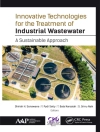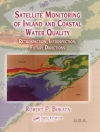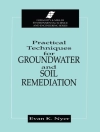It is the purpose of this book to provide the meteorological knowledge and tools to improve the risk management of energy industry decisions, ranging from the long term finance and engineering planning assessments to the short term operational measures for scheduling and maintenance. Most of the chapters in this book are based on presentations given at the inaugural International Conference Energy & Meteorology (ICEM), held in the Gold Coast, Australia, 8-11 November 2011. The main aim of the conference was to strengthen the link between Energy and Meteorology, so as to make meteorological information more relevant to the planning and operations of the energy sector. The ultimate goal would be to make the best use of weather and climate data in order to achieve a more efficient use of energy sources. This book seeks to realise the same objective.
Spis treści
Part I: Why Should the Energy Industry be Concerned About Weather Patterns?.- A new era for Energy.- Vulnerability of Energy Systems in a Changing Climate.- Climatic Changes: Looking Back, Looking Forward.- Renewable Energy and Climate Change Mitigation – an Overview of the IPCC Special Report.- Part II: How is the Energy Industry Meteorology-proofing Itself?.- Managing Weather and Climate Risks: a View from the Energy Sector.- Improving Resilience Challenges and Linkages of the Energy Industry in a Changing Climate.- Combining Meteorological and Electrical Engineering Expertise to Solve Energy Management Problems.- Weather and Climate Impacts on Australia’s National Electricity Market.- Bioenergy, Weather and Climate Change in Africa: Leading Issues and Policy Options.- Part III: What can Meteorology offer to the Energy Industry?.- Weather and climate information delivery within national and international frameworks.- Meteorology and the energy sector.- Earth observations in support of the Energy sector.- Emerging Meteorological Requirements to Support High Penetrations of Variable Renewable Energy Sources: Solar Energy.- Current status and challenges in wind energy assessment.- Wind Power Forecasting.- Regional Climate Modelling for the Energy Sector.- In Search of the Best Possible Weather Forecast for the Energy Industry.- Part IV: How is the Energy Industry applying State-of-the-Science Meteorology?.- A probabilistic view of weather, climate and the energy industry.- Weather & climate and the power sector: needs, recent developments and challenges.- Unlocking the potential of renewable energy with storage.- Improving NWP Forecasts for the Wind Energy Sector.- Overview On Irradiance And Photovoltaic Power Prediction.- Spatial and temporal variability in the UK wind resource: Scales, controlling factors and implications for wind power output.- Reducing the energy consumption of existing, residential buildings, for climate change and scarce resource scenarios in 2050.- Energy & Meteorology: Partnership for the future.- Index.












